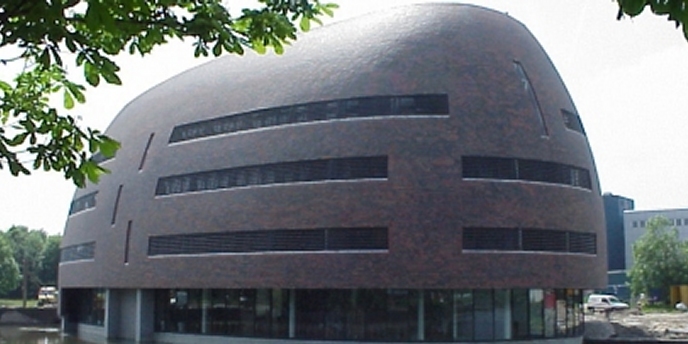Millions for new Groningen Target programme
From Big Data to smart data
The Target field lab entitled Mining Big Data has received a 2 million euro grant from the North Netherlands Collaboration for the next three years. This project, a collaboration of the University of Groningen (RUG) and Target Holding BV, aims to help small and medium-sized enterprises to convert Big Data into ‘smart data’. Target Holding heads a project named ‘Internet of Things: Business value from the Intelligent Swarm’, which has received an additional grant worth 1.4 million euros. In total, the new Target programme is an 8.3 million euro project. This joint programme is a completely innovative sequel to the Target project that ran from 2009 to 2015.

Mining Big Data field lab
The field lab supports companies in the development, testing and implementation of innovative intelligent Big Data services, using smart modelling and machine learning to enable smart searching and rapid exploration of mountains of data. These are among the core expertise areas of the UG. The field lab will use technology developed for the UG national data centre for Euclid, a European space mission.
Regional companies have a great need for support in the development of intelligent Big Data systems that are able to answer questions, make predictions and find and link up data sources. The Big Data access layer to be developed and facilitated by the field lab is the innovation to obtain smart and reliable data. Together with businesses, the Target field lab will develop such a Big Data access layer for three domains: data tracing (‘facts and fakes’), smart systems andvirtual reality.
Business value from the Intelligent Swarm
The Business value from the Intelligent Swarm project focuses on accelerated marketing of innovative services and products. To this end, four relevant market segments around big data have been selected: healthy aging and lifestyle, smart energy use, vehicle data and mobility, and environmental measurements. Another innovative focus is the development of a Facts and Fakes checker, both for media information and scientific data, which was inspired by the idea that reliable data validation will be the next major step in Big Data systems and social and news networks.
Joint approach
University departments and several private companies have joined forces in the Target field lab and share their knowledge of Big Data. OmegaCEN, the research group for astronomical information technology of the Kapteyn Astronomical Institute is a world leader in the development of data federations and highly advanced meta data systems. The UG Center for Information Technology (CIT) excels in operating very large (more than 10 Petabyte) storage systems and large computer clusters. With Horus Experience BV, a new joint venture of yellowbird BV and Horus BV, the field lab will develop virtual reality and 360-degree imaging projects and initiate a Groningen Virtual Reality Valley.
The joint Target programme aims to accelerate economic growth, support local small and medium-sized ‘data’ businesses with smart applications and expand the unique knowledge leadership. In addition, the leap is being made from test bed to robust operational smart systems facilitating scientific and commercial services.
| Last modified: | 15 October 2024 11.15 a.m. |
More news
-
03 April 2025
IMChip and MimeCure in top 10 of the national Academic Startup Competition
Prof. Tamalika Banerjee’s startup IMChip and Prof. Erik Frijlink and Dr. Luke van der Koog’s startup MimeCure have made it into the top 10 of the national Academic Startup Competition.
-
01 April 2025
NSC’s electoral reform plan may have unwanted consequences
The new voting system, proposed by minister Uitermark, could jeopardize the fundamental principle of proportional representation, says Davide Grossi, Professor of Collective Decision Making and Computation at the University of Groningen
-
01 April 2025
'Diversity leads to better science'
In addition to her biological research on ageing, Hannah Dugdale also studies disparities relating to diversity in science. Thanks to the latter, she is one of the two 2024 laureates of the Athena Award, an NWO prize for successful and inspiring...
